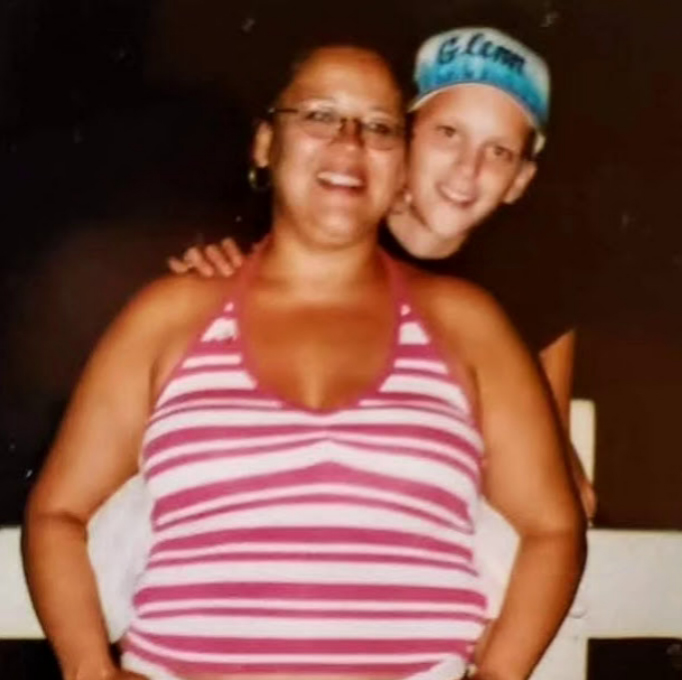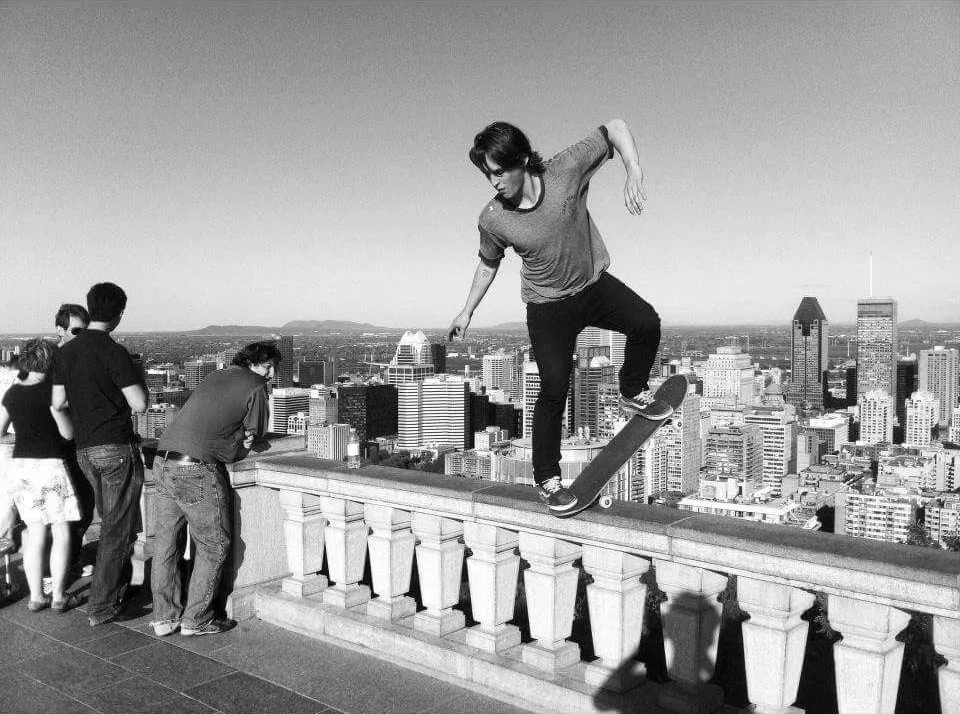A First Nations mother whose son died from a toxic drug poisoning is finding healing in culture, ceremony, and helping others navigate their grief
Content Warning: The content in this article is distressing and may trigger unpleasant feelings and memories for some people. Those who require emotional support can contact the 24-hour KUU-US Crisis Line at 1-800-588-8717.

Meredith Dan of Lil'wat First Nation is one of the thousands of people in BC who have lost loved ones to the toxic drug crisis. Her only child, Glenn Rebic, died at the age of 29 after using cocaine that, unbeknownst to him, was laced with fentanyl. That was five years ago, on June 22, 2019. A video tribute to Glenn is posted on Honouring Our Loved Ones.
Meredith has worked at the First Nations Health Authority for eight years and at a culture-based recovery centre funded by the FNHA and Vancouver Coastal Health prior to that.
She recently shared her story with Dr. Nolan Hop Wo, Medical Officer, Mental Health & Wellness, FNHA Office of the Chief Medical Officer, in the hopes of helping others who are experiencing this kind of loss.
The following is edited for the purposes of brevity and clarity.
Dr. Nolan: Can you tell us about the support you've received since your son Glenn passed away?
Meredith: Glenn was a legend in the Vancouver skateboard scene, and this community has been my biggest support since he died. Many of his friends have become very close to me. They have become family, and we support each other – it is a two-way street. Although Glenn died five years ago, not a day has gone by that I have not heard from one or more of them. I live close to the skateboard park where Glenn hung out most of his final days. If I am having a difficult day, I go over to the park for comfort, hugs and support.
As well, the love and support I received from FNHA colleagues after Glenn died was a big part of my healing journey. My director came to my house the day after I found out my son died. This was just one of many kindnesses I experienced from FNHA staff after losing my son. The FNHA is very much a family for me; they are so caring.
What surprised me the most was the reaction of some of my closest friends. They were distant, and did not contact me during the darkest days of my life. My guess is they were uncomfortable dealing with my grief. I was hurt and angry for a long time about this, but I understand now that they just did not know what they could do to support me.
Dr. Nolan: What do you think led to your friends becoming distant? Do you have advice for people wanting to support friends who are grieving?
Meredith: My friends distanced themselves because they didn't know what to do. I don't think people understand it doesn't take a lot to comfort someone who is grieving. For example, a phone call asking, “How are you doing today?" can make the biggest difference in their day. People need to understand they don't need to offer big gestures to a grieving person. If you have friends or family who are grieving, ask them, “How are you TODAY? Is there anything you need, or anything I can do for you?" The offer shows that you care.
Dr. Nolan: Can you tell us about your grieving process?
Meredith: I know that I now belong to an exclusive club [parents who have lost a child], one that I don't want anyone else to join. There is no way to explain how you're going to get through it. Grieving is irrational, unpredictable, and it comes in waves. For example, I was at Super Store once, and I saw Vanilla Oreos. They were Glenn's favourite cookies. Seeing them triggered me and I started bawling my eyes out.
It is very important to reach out for help, and to be your own advocate. For example, I knew this five-year anniversary was coming, so I scheduled more sessions with my therapist. I also avoid alcohol, as it is a known depressant, and walk a lot outside. The FNHA's Virtual Doctor of the Day helped me with medication to regulate my mental health and the severe insomnia I experienced after Glenn died. I was beyond tired because I could not sleep; I was barely functioning.
Dr. Nolan: How would you describe your grief?
Meredith: Grief is the ultimate pain. My heart physically and literally hurt. It felt like my heart shattered. I suffered severely from survivor's guilt. I questioned everything I did as a parent that led to Glenn's alcohol abuse. It has taken a lot of work to understand not to blame myself. It's an ongoing process. Five years later, I still find it difficult to navigate, but I've learned through extensive counselling that Glenn's death was not my fault. I've had to accept that it was his adult decision to do the line of cocaine that led to his death. My counsellor pointed out that I did my best as a parent and that it showed in the love we shared for each other.
Dr. Nolan: How has your grief changed?
Meredith: I still cry every single day. The pain will never go away. It is not as catastrophic as it was in the beginning. I have learned how to manage my pain so I can get through each day. With each day that passes, I feel like I am further away from him. However, I remind myself that I am also one day closer to him [in the Spirit World]. He was my world. The pain will only ever go away when I am on the other side with him.
At times, I have avoided people. I didn't want to make them uncomfortable because I cried so much. I always felt like I was the sad person. I could not talk about Glenn without crying. Five years later, I still cry, but I am able to look back at the happiness and joy we shared.
The thing I can let others in the same situation know is, “You will smile again someday." I didn't think I would ever able to smile and laugh again, but months after Glenn died, I found myself laughing again. I was talking to my best friend and an inside joke from the Jim Carrey movie, “Liar, Liar," triggered my funny bone.
I can see and recognize joy and happiness again despite the pain. I am allowing myself to be happy and live again; that is what Glenn would want. Glenn loved life. In fact, I think his candle burned out early because he lived such a bright and full life. He took so many risks. He was a legend. Skateboarding was his passion, and his skateboarding friends loved him.

Dr. Nolan: Your friend getting you to laugh – that seems small, but it's a good example of how to support people going through grief.
Meredith: Yes. Just be there, embrace them. They don't need big things. Just everyday kindnesses can help us, like being given a seat on the train. You can bring joy to a person's life and take a bit of pain away. You never know what others are going through.
Dr. Nolan: Has being First Nations affected your grieving process?
Meredith: Yes. I had a traditional celebration of life for Glenn. It was beautiful. Friends and family sang traditional songs and played their drums. I felt the love and support from my Lil'wat community. As I was kneeling at Glenn's coffin saying goodbye for the last time, I was surrounded by about 40 women on the drums singing the Warrior Women Song by Lil'wat Elder Martina Pierre – I'd asked her if we could use her song. The beauty and love I felt as all these women sang and drummed was powerful. I am so proud to be from Lil'wat Nation. Having that connection was so precious. Several people told me that his service was the most beautiful and impactful celebration of life they had ever experienced.
Also, my FNHA family even to this day supports me, hugs me, comforts me when I need it, allows me to feel pain when it comes. Pain is not a sign of weakness, I have learned. It is important to allow myself to feel the pain. If I do not let it out, it will compound and there might be a temptation to turn to substances. There are healthy ways of coping with pain and unhealthy ways. I am choosing healthy ways. I'm navigating pain in a healthy manner. I am planning to get involved with Moms Stop the Harm “Healing Indigenous Hearts" training sessions the FNHA's Office of the Chief Medical Officer is leading – training Indigenous peer facilitators to lead support groups for Indigenous people who have lost loved ones to the toxic drug crisis. It looks amazing. The Indigenous community really needs it. There's grief everywhere due to this toxic drug crisis, not just in our communities. I'm glad there are now more resources, including this – I will take the training and become a facilitator. I want to help others, in honour of Glenn. So that his death is not in vain. I'm glad that there are a lot more resources for the toxic drug crisis now, but there still need to be more.
Dr. Nolan: Thank you for sharing your experience with grieving for the loss of your son. And for reminding us that pain does not equal weakness, and pain in the context of grief and loss is normal. In the case of the toxic drug crisis public health emergency, we are all affected and we are all in this together.
If you are grieving the loss of a loved one due to the toxic drug crisis, you may find supports here:
- Tsow-Tun Le Lum Society
For counselling, cultural support, or outreach services, please call the toll-free line at 1-888-403-3123 or the main office at (250) 390-3123. - Lumara Society
Provides education, support and counselling services to children, youth, individuals, and families impacted by life-threatening illness, grief, and loss. - KUU-US Crisis Line
Toll Free: 1-800-KUU-US17 or 1-800-588-8717
You can also share a memory of your loved one at honouringourlovedones.fnha.ca. You can share a story, a video, photo, artwork or an audio recording.

